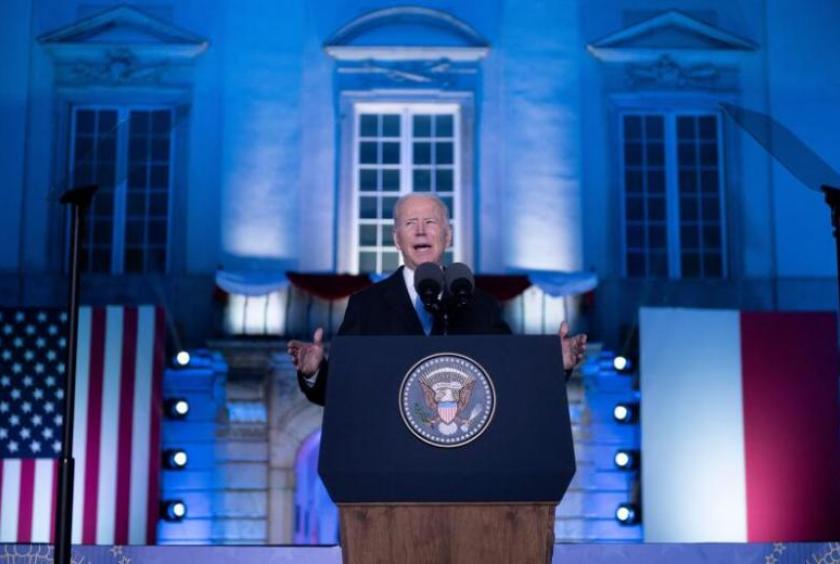
The Straits Times/ANN
The White House took pains on Sunday (March 27) to clarify US President Joe Biden’s closing remarks in a Saturday speech where he appeared to call for Russian leader Vladimir Putin to be ousted.
French President Emmanuel Macron warned against verbal “escalation” of the Russian invasion of Ukraine, and the Kremlin offered a rebuke over Mr Biden’s comments.
The United States has no strategy of regime change for Russia, US Secretary of State Antony Blinken told reporters on Sunday.
“I think the President, the White House made the point last night that, quite simply, President Putin cannot be empowered to wage war or engage in aggression against Ukraine or anyone else,” Mr Blinken said.
“We do not have a strategy of regime change in Russia or anywhere else, for that matter. In this case, as in any case, it’s up to the people of the country in question. It’s up to the Russian people.”
As part of his trip to Poland, Mr Biden had given a major speech at Warsaw’s Royal Castle on Saturday evening, during which he warned the world to steel for a long battle in the fight for Ukraine, referred to Mr Putin as a “butcher”, and ended by saying: “For God’s sake, this man cannot remain in power.”
It was not immediately clear if Mr Biden’s closing remark was scripted or improvised.
Some US media including Politico, Bloomberg News and The New York Times have reported that the final words were not in the US leader’s prepared remarks, although the White House has not clarified that point.
The comment risks fuelling Mr Putin’s narrative that the conflict in Ukraine is an effort by the US and its allies to unseat him, rather than a bid to end the violence inflicted by a foreign power on a sovereign state.
The stakes are even higher considering Russia’s position as a nuclear-armed power and Mr Putin’s penchant for unpredictability.
Following Mr Biden’s speech, a White House official said the President’s words were meant to prepare the world’s democracies for an extended conflict and that it did not herald a shift in the US position that has so far avoided direct military involvement in Ukraine.
The US envoy to the North Atlantic Treaty Organisation (Nato) Julianne Smith reiterated that stance on CNN’s State of the Union programme on Sunday.
“In the moment, I think that was a principled human reaction to the stories (in Ukraine) that he (Mr Biden) had heard that day,” Ms Smith said. “The US does not have a policy of regime change in Russia. Full stop.”
In France, Mr Macron called for restraint in both words and actions over the war in Ukraine.
“I wouldn’t use this type of wording because I continue to hold discussions with President Putin,” the French leader said on Sunday, referring to Mr Biden’s speech.
“We want to stop the war that Russia has launched in Ukraine without escalation – that’s the objective. If we want to do that, we can’t escalate either in words or actions.”
Moscow, meanwhile, said Mr Putin’s future was not for Mr Biden to decide.
“The President of Russia is elected by Russians,” Kremlin spokesman Dmitry Peskov told Reuters.
Separately, he told Bloomberg News that insults of Mr Putin “narrow the window of opportunity for normalising dialogue, so much needed now, with the current US administration”.









